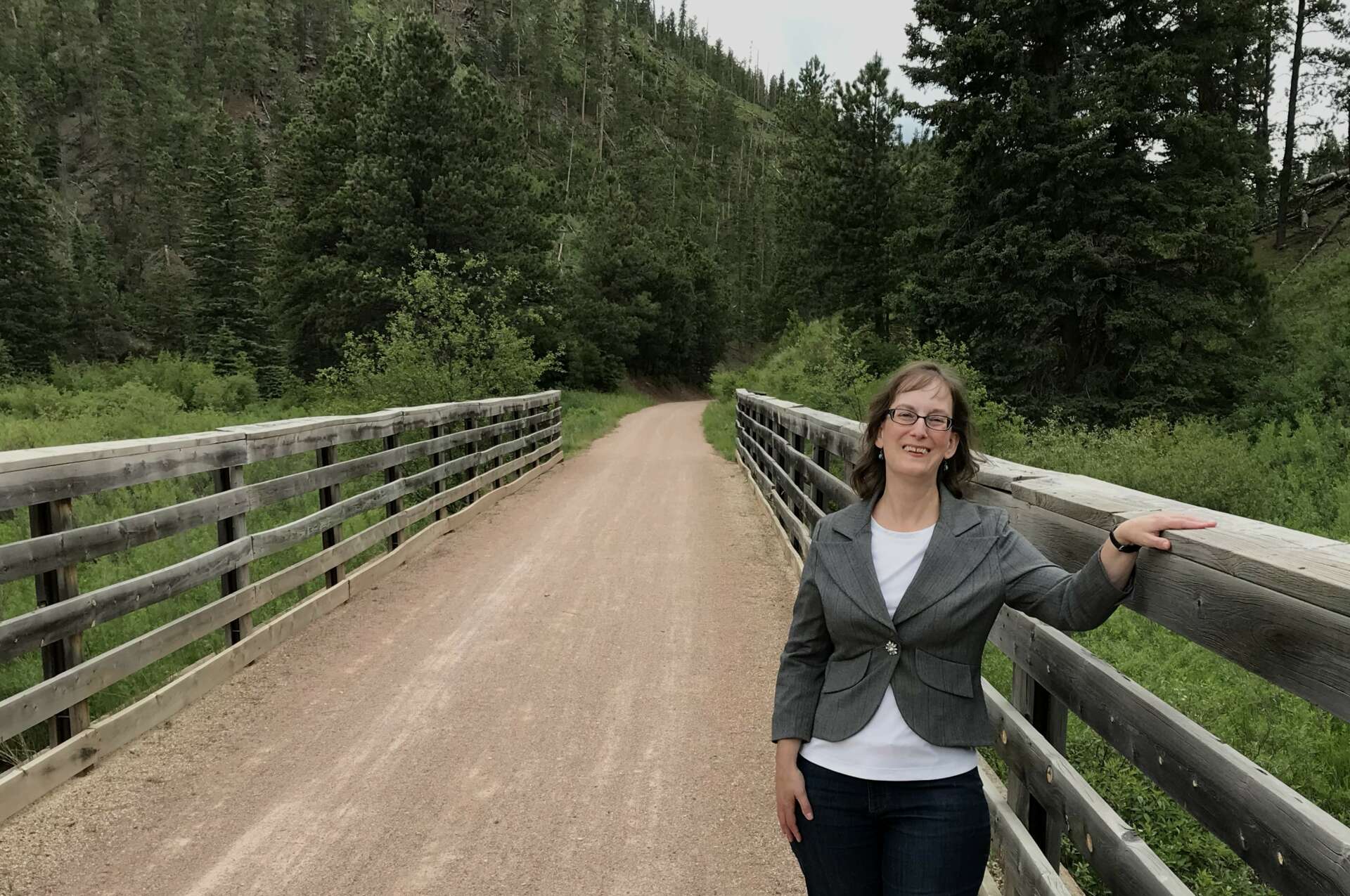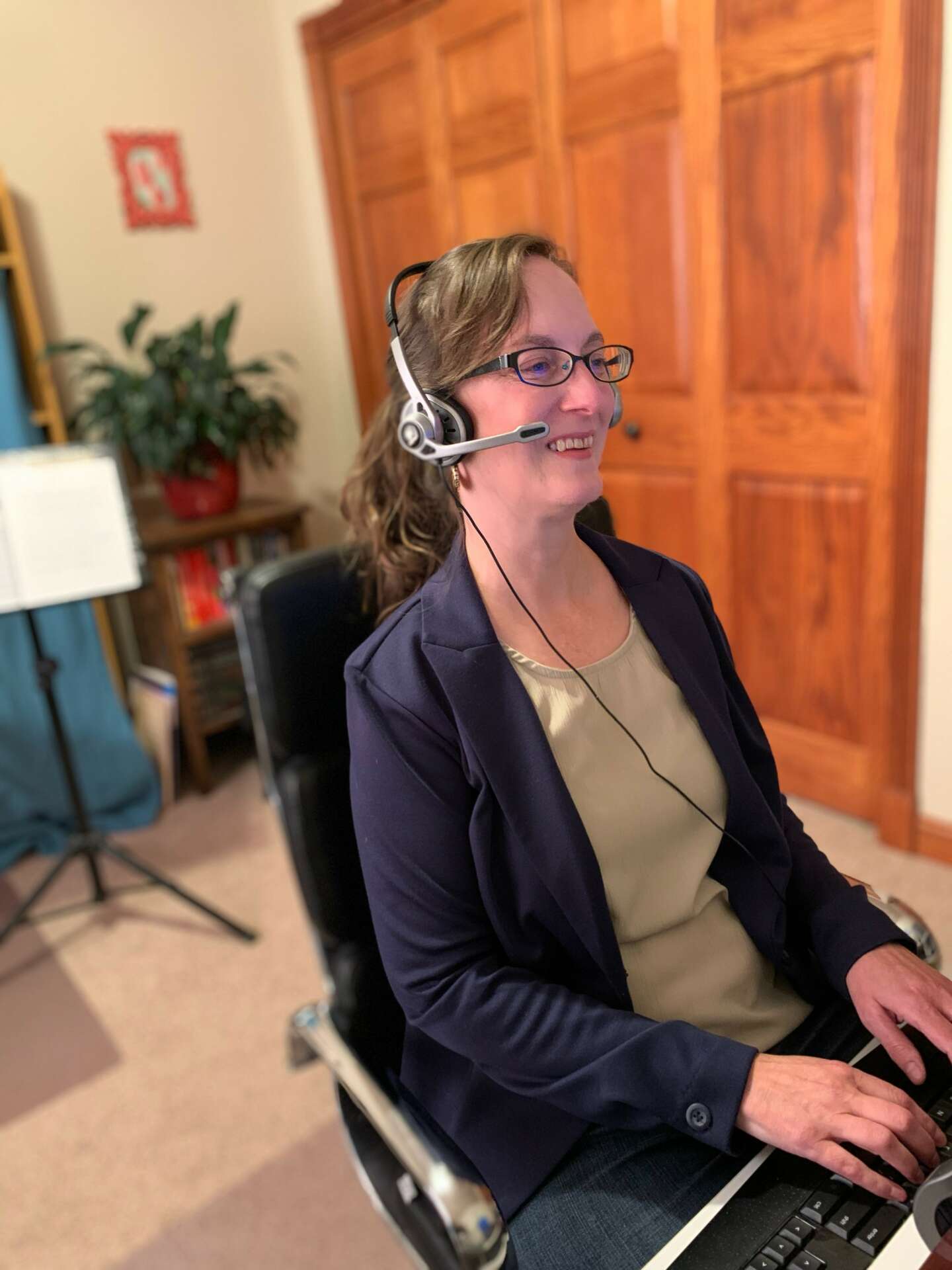Alright – so today we’ve got the honor of introducing you to Nancy Williams. We think you’ll enjoy our conversation, we’ve shared it below.
Nancy, thanks for joining us, excited to have you contributing your stories and insights. It’s always helpful to hear about times when someone’s had to take a risk – how did they think through the decision, why did they take the risk, and what ended up happening. We’d love to hear about a risk you’ve taken.
I’m a big believer in enjoying the journey and detaching yourself from the results of your efforts. So when I was really disappointed after not receiving a call back for a job I thought I was perfect for, I knew I needed a mindset shift.
Each rejection is proof of putting yourself out there and taking a risk, so I decided to take a full semester to see how many rejections I could get, and to start celebrating them. Some results I expected – to be more willing to take risks and to have less of an emotional response to rejection, for example. Others were a surprise.
I quickly learned early on that there were too many opportunities to just start applying for things. I had to be strategic and selective. This forced clarity on what I wanted to do the most. Noticing which opportunities made me most excited got me to dream bigger and apply for things that I’d truly love to do. If it didn’t make my heart sing, I let it go and focused on something that did, even if it seemed out of reach.
The more transformative elements of this experience developed gradually. I noticed that rejections had nothing to do with me. Some people just didn’t want what I was offering. The reactions were so varied (between seeming offended to grateful), that it clearly had nothing to do with me personally. I was the same person offering the same things. Their reactions were the changing variable.
More than dreaming bigger and getting a thicker skin, I was becoming even more confident in my abilities and my voice. Limitations in my mindset melted away. Instead of asking myself, “Can I do this?” or “Would I have a chance?”, my thoughts became, “Do I really want to do this?”
The following semester, my professional life blossomed because of all the rejections that didn’t happen. I’d been accepted to perform and present more than I’d anticipated. Because two events were several weeks apart and in a different part of the country (when flight and rental car prices were obscene), I wondered if I could create a last-minute tour between the two. The tour happened and it was an amazing success, catapulting my career to the next level in skillsets, experience, and connections. This, in turn, created more opportunities.
At some level, my semester of rejections didn’t stop. The freedom of putting myself out there without the fear of judgment or rejection was liberating and even mildly addictive. I like thinking bigger and doing bigger things to this day.

Great, appreciate you sharing that with us. Before we ask you to share more of your insights, can you take a moment to introduce yourself and how you got to where you are today to our readers.
Growing up in a small, isolated Midwest town (seriously, like 6 people in my graduating class kind of small), I was lonely and very high strung. Music saved me from myself. Performing was the first time I felt I had a voice, one that others wanted to hear, anyway, but I had to learn to relax and notice what needed improvement without judgment in order to be successful. This journey is what inspired me to become a music educator. I wanted to inspire awareness and empowerment in my students so that they could be agents of positive change in the world.
After receiving my doctorate in clarinet performance in December 2019, I had to readjust my dreams of a professorship due to the changing higher education landscape of the pandemic, health issues, and financial circumstances forced me to reevaluate how I could be relevant as a professional musician and educator. When I discovered coaching, it was a perfect fit. I’d always taught more than music to my music students; I helped them navigate all the personal and emotional elements of creating something deeply personal in the harsh landscape of competition within the music industry. Through leadership coaching, I could still inspire awareness and empowerment in musicians whose careers are not as joyful and productive as they could be.
I’ve come to specialize on overcoming imposter syndrome, self-esteem and confidence issues, and overwhelm/burnout. I’m most proud of the lives I’ve influenced through teaching and coaching and all I’ve overcome personally and professionally. My experience of beating imposter syndrome caused by a gaslighting supervisor has gifted me enhanced understanding and empathy, allowing me to help my clients on a personal and vulnerable level. All those years of isolation in my childhood honed my listening and productivity skills, patience, and deep respect for others. My experience as a band director and music educator taught me how to identify the core of a problem, and to lead others to become their best selves. The loss of my parents and others close to me in addition to managing chronic pain has revealed the value of living life on your own terms and the importance of separating your worth as a person from what you do.
In short, I help people appreciate the brilliance of their own journey so that they can shine!


Learning and unlearning are both critical parts of growth – can you share a story of a time when you had to unlearn a lesson?
Being a high-strung perfectionist and overachiever was not sustainable when I encountered serious health issues. I’d defined myself by my career, and then suddenly I could only work a few hours a day. I learned to honor my value and worth as a person, separate from my work. The culture in which I’d grown up valued prioritizing others’ needs over my own, but I was faced with having to be “selfish” with my time and energy in order to maintain my physical and mental health. Coming to terms with feeling like I was constantly disappointing others meant that I had to reevaluate my own value system and create a more forgiving and less judgmental culture for myself.
Ultimately, I learned that I am enough. I have worth and value as a person by just being.


Is there something you think non-creatives will struggle to understand about your journey as a creative? Maybe you can provide some insight – you never know who might benefit from the enlightenment.
I’ve learned through being a coach that feeling misunderstood and unaccepted is a common experience for creatives. Our main source of authentic communication is often through our work, so it’s not surprising that many of us who are drawn to the arts are on the broad autism spectrum, many highly functioning and undiagnosed.
Yet others may be highly sensitive and perceived to be overly-sensitive. Instead of a negative characteristic, it can actually superpower, as is the ability to see the world in a unique individualized way and to be able to express that (often altruistic) view.
Collectively, we often don’t think, communicate, behave, or react how others think we should because we often see the world and our place in it differently than non-creatives do. Because of this, it may be challenging for us to feel like we belong. Modern society values money and power, and we value self-expression and empathy.
Like the movie “A River Runs through It,” you don’t need to understand the creative journey as much as you need to respect it. If given space to feel safe and valued, we can be the light-bringers, our work a mirror into the soul, a challenge to celebrate the humanity that we all share, and a catalyst for positive change.


Contact Info:
- Website: drnancywilliams.com
- Instagram: @dr.nancywilliams
- Facebook: @dr.nancywilliams
- Linkedin: Dr. Nancy Williams
- Youtube: Dr. Nancy Williams


